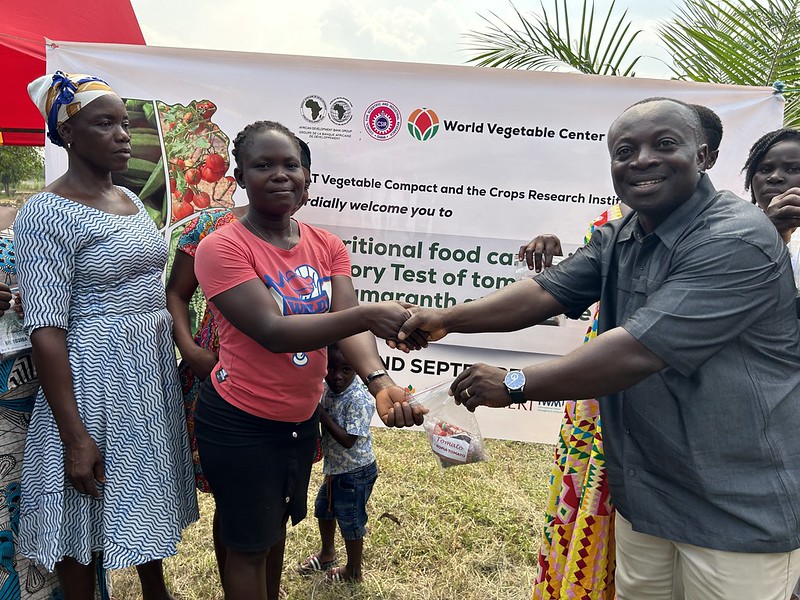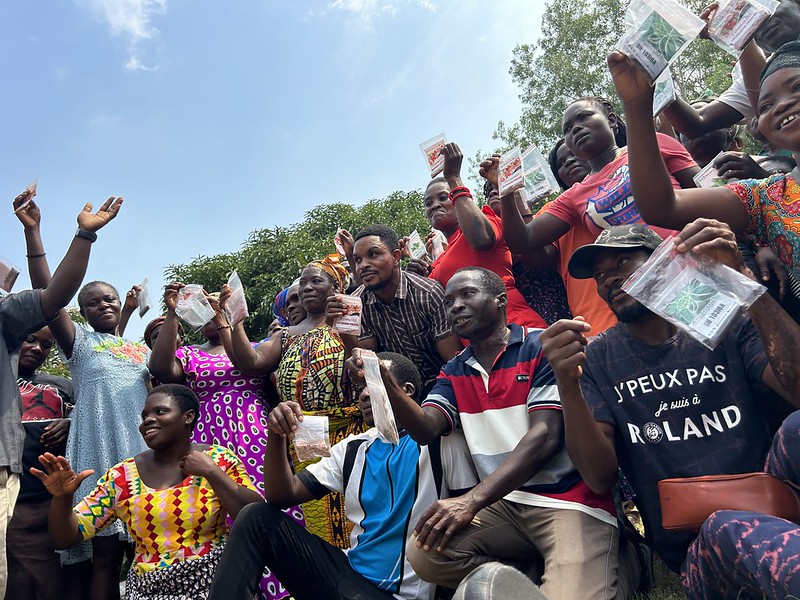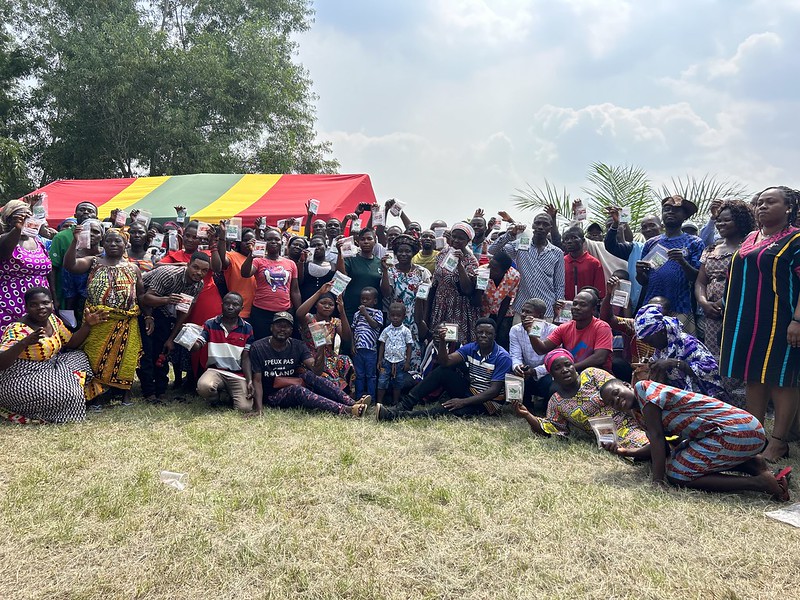
By Deborah Olaoluwa
Vegetables are more than just food on the plate; they are powerful drivers of nutrition, income, and resilience for farming households.
In Ghana, crops like tomatoes, amaranth, and okra are central to diets. Yet, many smallholder farmers still depend on old varieties that often yield less, spoil quickly, and vary in taste. With malnutrition still a concern and the need for healthier diets growing, improved vegetable varieties provide a pathway for communities to access more nutritious foods while also strengthening farm incomes.
With this vision, Technologies for African Agricultural Transformation (TAAT), in collaboration with the World Vegetable Center (WorldVeg) and the Crops Research Institute (CSIR), Ghana, on 2nd September 2025, organised a Nutritional Food Campaign, Sensory Test, and Seed Kit Distribution in Agotime Ziope, Volta Region in Ghana.
Attended by over 227 farmers (84 Females, 143 Males), the initiative sought to showcase the nutritional and culinary qualities of improved vegetables, encourage healthier eating habits, and place improved seeds directly in the hands of farmers to secure sustainable production.

The day’s highlight was a sensory test that allowed farmers to taste improved tomato, amaranth, and okra varieties side by side with their local counterparts. The atmosphere was lively as participants compared flavours, textures, and cooking qualities, rating them from very good to bad.
Many were struck by the superior taste and appeal of the improved varieties, a discovery that sparked confidence in adopting them. Alongside the tasting, extension agents, health workers, nutritionists, and local officials engaged in conversations about the importance of vegetable consumption in reducing micronutrient deficiencies and improving community health.
To ensure that this awareness translated into practice, the campaign concluded with the distribution of 227 seed kits to farmers. These kits contained assorted seeds of the promoted vegetables (okra, tomato, and amaranth). The seed kits were designed to enable farmers to test the improved varieties under their specific growing conditions, thereby creating demand for seeds that would be met by local seed companies that have been trained.
The impact of the campaign was best captured in the voices of farmers themselves.
“The tasting was an eye-opener,” said Mr. Teku Dofe, a local farmer who participated in the sensory test.

“I have always grown local tomatoes, but when I tasted the CSIR Kwabena Kwabena variety, I noticed the flavour was richer and the texture firmer. I can already imagine customers in the market preferring this variety. I am motivated to try it on my farm.”
For Madam Agbo Mercy, a seed kit recipient, the experience was equally transformative. “Getting the seed kit is a blessing. Normally, I struggle to buy quality seeds, but now I have improved seeds for tomatoes, amaranth, and okra to start the season. I know these will not only feed my children healthy vegetables but also provide me with extra income from sales. This is real empowerment for women farmers like me.”












